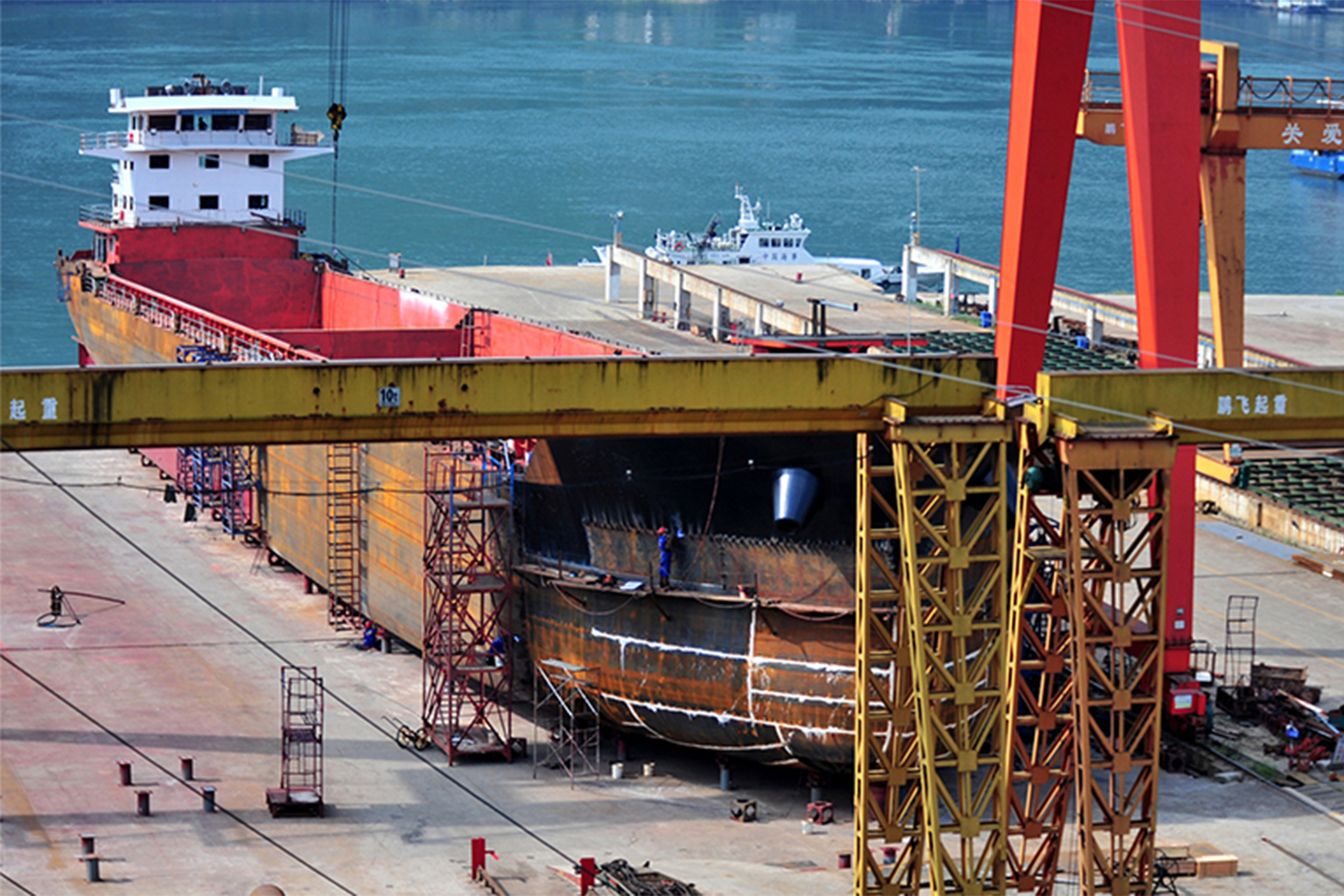 US SHIPS Act May Miss the Mark, Chinese Expert Says
US SHIPS Act May Miss the Mark, Chinese Expert Says(Yicai) Dec. 30 -- The United States' shipbuilding industry will struggle to meet the requirements set by the latest legislative proposal, according to a Chinese expert.
The Shipbuilding and Harbor Infrastructure for Prosperity and Security for America Act proposed by the US last week may not achieve its expected results, Wan Zheng, professor at Shanghai Maritime University, told Yicai. The US has limited capacity to build commercial vessels, and its competitiveness is weaker compared to Asian countries, Wan added.
The bipartisan bill, introduced on Dec. 19, proposes that by 2029, at least 10 percent of Chinese imports shipped to the US must be carried on ships that are registered and built in the US and staffed by American crews.
The act aims to enhance US shipping autonomy while limiting the proportion of cargo shipped by Chinese vessels, according to Wan.
The goal is to establish a US-flagged fleet of 250 vessels within a decade, up from the current 80 ships. The act also proposes establishing a Maritime Security Trust Fund to support multiple maritime security initiatives, including an annual USD250 million allocation for investments in US shipyards.
The proposed USD250 million allocation could only support limited capacity expansion, falling short of policy needs, Wan said.
In the short term, the US may have to rely on renting foreign vessels or international cooperation, per Wan. However, this conflicts with the long-term goal of reviving the US shipbuilding industry, he added.
Higher Shipping Costs
If passed into law, the act could lead to higher logistics costs and shipping route adjustments, according to the professor. Specifically, American importers may seek alternative transport solutions due to rising costs, he added.
An industry insider said that the container shipping industry will be disrupted if the act becomes law.
The act's details are difficult to implement, Tu Xinquan, dean at the China Institute for World Trade Organization Studies of University of International Business and Economics, told Yicai.
For example, it remains unclear how the 10 percent requirement would apply to freight forwarders and other logistics suppliers. The act also requires busy US ports to prioritize berths for US-flagged vessels.
The regulation clearly violates existing WTO rules, Tu said, adding that "no one cares about the WTO rules anymore though."
Editor: Emmi Laine